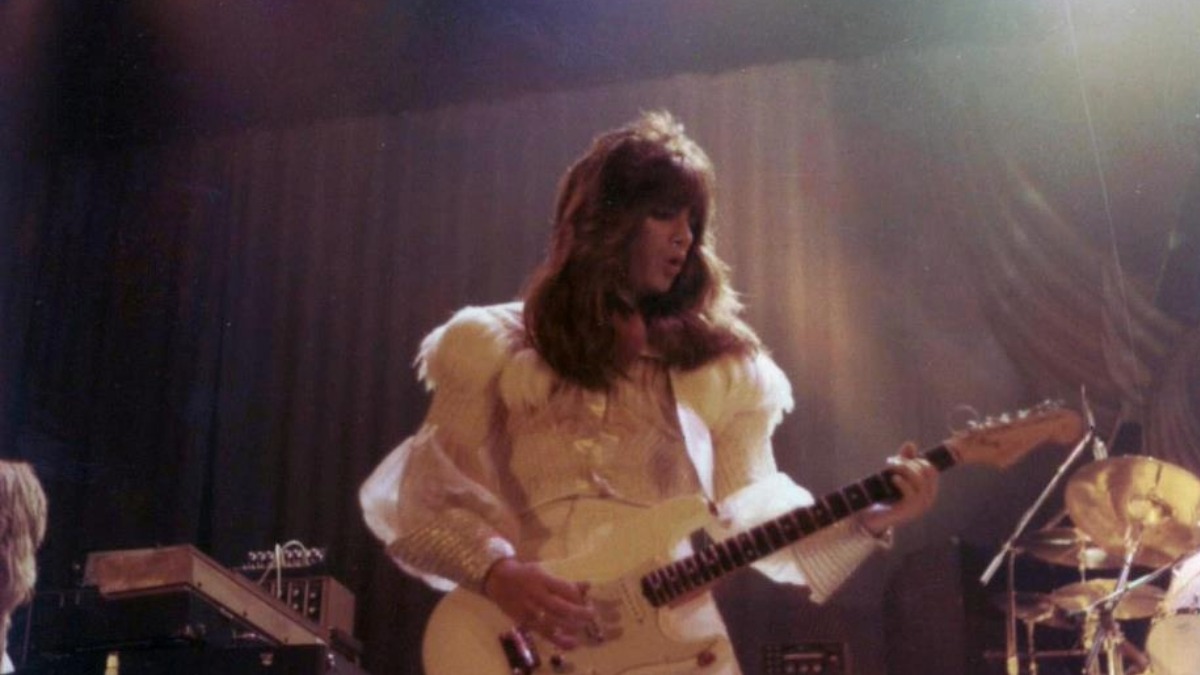C.C. DeVille's Greatest Guitar Moments
All the latest guitar news, interviews, lessons, reviews, deals and more, direct to your inbox!
You are now subscribed
Your newsletter sign-up was successful
Poison made their mark by polishing glam rock down to radio-friendly Hollywood pop-metal. As the band's guitarist, C.C. DeVille, will tell you, it’s pretty hard to live down a past like that—he’s certainly endured a lot of criticism since the Nineties, and been the brunt of one too many jokes in magazines like this one. So to make it up to him, we’ve decided to give him a special—and 100-percent genuine—tribute.
7. “Fallen Angel”
This is the signature C.C. DeVille rhythmic motif if there ever was one, and in it he plays the sus4 chord up to arena-rock anthem proportions. His attention to composition carries over to his solo, where he begins by riding a few sustained notes, saving the burst of speed for the last possible moment.
6. “Talk Dirty to Me”
With one bold, highly nuanced pick scrape—one of the longest in recorded history—DeVille ushers in a whole new era of glam. What’s more, the lyrical assortment of double-stops in his solo saved Christmas that year.
5. “Swampjuice (Soul-O)”
Give Deville an acoustic guitar and he spits out Nashville guitar licks with heavy-metal ’tude in a Jimmy Page-like reworking of a country blues. It takes some serious technique to pull this stuff off without the help of electric effects.
All the latest guitar news, interviews, lessons, reviews, deals and more, direct to your inbox!
4. “Unskinny Bop”
Outside of Angus Young and Eddie Van Halen, how many rock players have successfully built a hit song around a busy riff full of hammer-ons and pull-offs? Think about it. In addition, the solo suggests that at the time C.C. was becoming a fan of Vernon Reid’s avant-metal freak-outs.
3. “Something to Believe In”
In a power ballad fraught with spiritual crisis, DeVille’s emotional solo is a veritable reaffirmation of faith. And there’s more than a little David Gilmour in those long, languorous bends.
2. “Nothin’ But a Good Time”
Recalling the classic-rock glory of Elton John’s “Saturday Night’s Alright (for Fighting),” DeVille’s suspended riff and big-ass tone hold this three-chord wonder together. Really, his sound is the musical embodiment of the song’s title—which was itself the band’s modus operandi.
1. “Life Goes On”
This could be DeVille’s crowning moment as a lead player. In fact, his phrasing here—drawn-out bends interspersed with exceedingly melodic bursts of speed—recalls Brian May’s style. Also of note is his keen sense of rhythm. His lines are delightfully unpredictable when they go against the beat.
Since 1980, Guitar World has been the ultimate resource for guitarists. Whether you want to learn the techniques employed by your guitar heroes, read about their latest projects or simply need to know which guitar is the right one to buy, Guitar World is the place to look.

